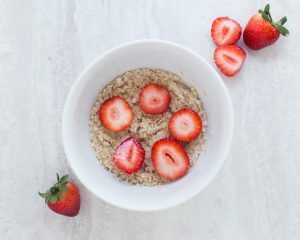Science of Cooking: Scientifically proven recipes for the perfect breakfast:
We see every food goes with scientifically proven ways. Science and food are always parallel to each other; the science of cooking is a realm worth exploring for any cook or chef.
Breakfast is the first meal of our day, so it has got to be healthy and balanced for everyone. If we eat the right proportion of nutrients at the start of the day, we can spend the rest of the day energized and functioning. If you want the perfect breakfast, you must try some scientifically proven recipes.
Check out The Science of Cooking: Every question answered to Perfect your Cooking on Amazon!
Following are some breakfast dishes that demonstrate the Science of Cooking:
Scientifically proven recipes for the perfect breakfast

1) Puffed cereal:
If you wish to take start with the puffed cereal, you need to take wheat and rice. You will cook them and then place in the cannon. Put the lid above it and then heat it. The pressure of the cannon will increase, which will make the grains to become a thick jelly. Switch off the flame and then leave it to cool. When it gets cool, it becomes hard, bubble-filled and crispy nugget; isn’t the science of cooking amazing? It’s the best scientifically proven recipe to try in your breakfast.
2) Boiled Egg:
It’s challenging to cook the egg half boiled in which the white is perfectly cooked, and the yellow is soft and runny. It needs the appropriate time to boil the egg, which depends on its size, temperature of the egg, the amount of water to cook the egg. If you want the half-boiled egg, you need to follow the science. You need to give a 65-degree C to make the yellow half boiled.
Because the egg yellow needs 66-70 degree centigrade to get full boiled whereas the white need to be 61-65-degree centigrade. So, when we put the heat to be 65 degrees, it means the white will be cooked while the yellow as runny.
3) Fries with baking soda:
Fries is the easiest way to make if you want to make breakfast quickly. It’s a scientifically proven meal where you must care about the time to fry, the consistency of potato etc. You need to boil them and then bake. You must have 3 ½ pounds of russet potatoes with ½ teaspoon of banking soda.
Other ingredients include three tablespoons of unsalted butter, kosher salt, pepper, a pinch of cayenne pepper, 3 tablespoons of vegetable oil. 2 onions and three tablespoons of fresh minced chives. Heat the oven to 500-degree F but before that put a baking sheet in it.
Peel off the upper layer of potatoes and then cut them into ¾ inches diced. Peel the onions and cut into ½ inches cubes. Boil water in a saucepan and put the potatoes in it to boil them along with baking soda. Leave it for one minute to boil.
When you use baking soda in the potatoes when boiling, the alkaline in it breaks down into pectin which adds consistency to the potatoes. It helps them to get brown instantly when you fry them.
Put out the potatoes after a minute from boiling and then keep them for drying. Add pepper, kosher salt, and butter, mix all of them for 30 seconds. The baking sheet in the oven should be removed and spray two tablespoons of vegetable oil on the sheet. Put the potatoes on it and then in the oven for 15 minutes to roast.
After 15 minutes, keep the potatoes to the side of the pan and put onions in the middle with salt and remaining oil in the onion. Put it back in the oven for 15 minutes. After 15 minutes, mix all the onions and potatoes. Then put it for 10 minutes so that the onions and potatoes are cooked thoroughly. You can add salt or other spices that you want at the end.
Check out The Science of Cooking: Every question answered to Perfect your Cooking on Amazon!
Read more Science Reviews on WeeklyReviewer!

